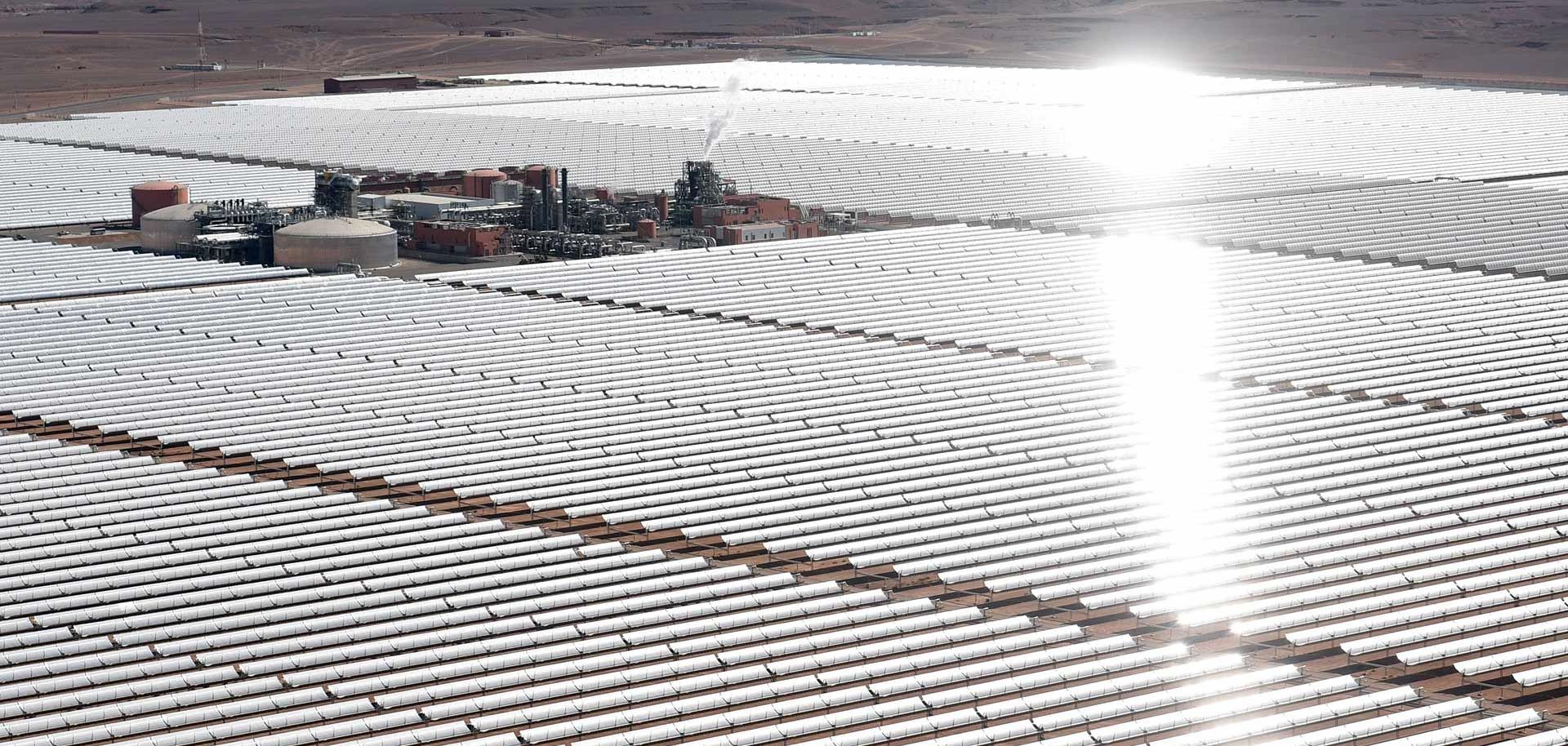ASSESSMENTS
A Bright Future for Solar Power in the Middle East
Apr 22, 2016 | 09:04 GMT

The first phase of Morocco's Noor Solar Complex came online in February. The project, built by Saudi company ACWA Power, is part of Morocco's greater ambition of becoming an electricity exporter.
(FADEL SENNA/AFP/Getty Images)
Proceed to sign up
Register NowAlready have an account?
Sign In